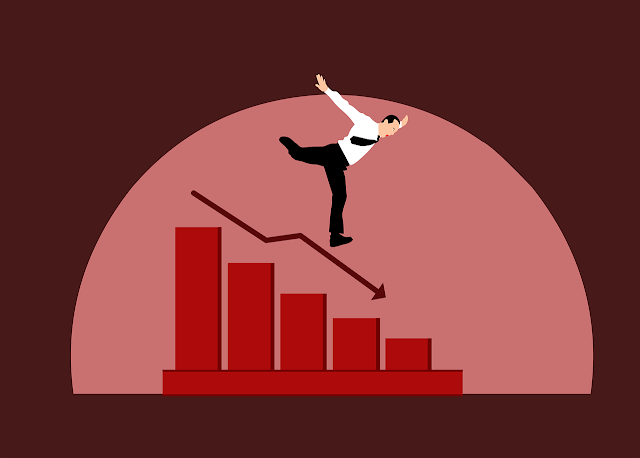The wisdom to stay put during stock market downturns: A path to FIRE (financial independence retire early) movement
 |
| Markets will go down, but they will always come back… |
Warren Buffett: “Look at market fluctuations as your friend rather than your enemy; profit from folly rather than participate in it.”
During the heydays of the late 1990’s when everyone and their babysitter was investing in the stock market, I also got my feet wet looking to make a quick buck. It was a time when everyone made money if they bought anything.
I had purchased a mutual fund ($3,000 worth), held it for about 3 months and made $800 in profit when I sold it. I thought I was a genius, but then, so did everyone else. I remember reading the cover of “Time” Magazine which showed everyone buying everything to do with the then new technology, the internet. Back then, if you had a company that did anything related to the internet, then you got rich.
You could do no wrong during those years leading up to the ‘dot-com bubble.’ Because I thought I was an investing genius, I invested another $8,000 to buy a technology growth mutual fund, right around January of 2000.
For any history buffs out there, the year 2000 would mark the burst of that same ‘dot-com bubble.’ Starting March of 2020, NASDAQ would eventually fall 75% from its peak. I saw my investment fall every month, then reach all the way down to about $3,400 at its lowest.
I had a choice to make when that happened. I could sell like most people did at the time, or stick it out until it came back up. I chose the latter, and I’m glad for it. Long story short, I made a small profit after the fund eventually recovered few years later…
This episode ended up being an important investing lesson. I learned not to panic when markets go down, and I understood the importance of having liquid/cash. In this post, I’d like to share my thoughts on staying put when markets go down.
One of the most important lessons to learn when investing is that stock markets will always fluctuate. There are the daily fluctuations but there are also stock market crashes that happen. Everyone either remembers or heard of the “Great Depression”, when stock market lost nearly 90% of its value, and it would take about 25 years to recover.
In my lifetime, there were 4 stock market crashes: 1987 (Black Monday crash), 2000 (dot com bubble), 2008 (Great Recession), and 2020 (Covid-19 crash). What all of these crashes have in common is that they ALL recovered their losses, then went higher vs pre-crash.
These day, with what’s going on in China (real estate bubble), the world (Coronavirus variants and the Ukrainian-Russian War), the Federal Government (bond tapering/raising interest rates) and the geopolitical issues (South China Seas, Russia), you’ll be sure to find some crazy ups/downs in the stock market. Just know that there will ALWAYS be something going on that’ll impact the markets.
Lately, I’ve seen lots of volatility thanks to these issues mentioned above. I call these selling frenzies, ‘temper tantrums.’ It’s not unlike a child making a fuss that something is not to their liking. They’re selling when interest rates may go up, they’re selling when the Fed is reducing bond purchases, and they’re selling when the moon is said to line up with planet Earth (kidding, I just made this reason up!).
My point is, people will make up reasons to get out of the market. If you follow your long term investing goals, investing in index funds/mutual funds (which give you diversity), and have emergency fund, then you shouldn’t care what the markets are doing. Keep that in mind…
These are some of the important lessons to learn when investing, which will allow you to gain investing wisdom in the long run:
- You’re investing for the long term; do not be swayed by daily gyrations of the stock market or by crashes
When you invest for the long term (hopefully over 14 years; the reason for 14 years is that you will most likely make money beyond that timeframe), daily moves on the market should not concern you. Even market crashes shouldn’t impact you if you don’t need that money right now. Remember you only lose money when you sell at a loss.
What does it matter if the stocks/mutual funds you own go down in value? Since you’re not selling them, it’s really a moot point.
- You need emergency fund to weather the storm
Having an emergency fund to use when market crashes is an important component to the FIRE (financial independence retire early) movement. Most FIRE movement adherents have a year or two years of yearly expenses in an emergency fund/liquid. I suggest you do the same, as crashes will always happen. You need to be prepared for this inevitability.
I’ve seen plenty of people lose money in the stock market when they didn’t realize they need cash/liquid to live every month. It’s awesome to see your money grow in the market, when the market is going up, but do not tie up all your retirement money in the stock market. You still need to pay for rent/food/gas/etc. when the market crashes and/or already retired. Keep this in mind.
- Market crashes are part of a healthy cycle in the stock market
- Market crashes offer an opportunity to purchase stocks/funds at discount
- No one can time the market
- For those that stayed put, they ended up with $30,000.
- An investor who missed the 10 best days during that period, ended up with $15,000.
- An investor who missed the best 30 days during that period, ended up with just $6,213.
In conclusion:
When investing for the long haul, it’s important not to panic, then sell at the worst possible time. Remember, you only lose money when you sell at a loss!
It’s important to understand that market crashes are a healthy cycle of the stock market. Think of it as a way to buy more shares at discount, and always have emergency fund to weather the storm.
Staying put and staying on course seem to be contrary to what you should be doing when market crashes, but this is exactly what you should be doing. Always invest for the long term, love index funds, and always buy more during boom times as well as bust times, until you reach your financial independence!
Thank you all for reading!
Jake
Wandering Money Pig
If you missed the post ‘What’s it like to hand in your resignation...’, please click here.


